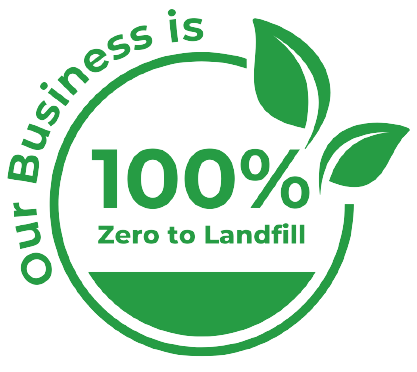WEEE - Waste Electric and Electronic Equipment
Nationwide WEEE Waste Collection and Recycling
What Is Waste Electric And Electronic Equipment (WEEE) Waste?
WEEE can be broadly split into 10 different categories:
1. Large domestic appliances - e.g. washing machines, dryers, cookers, microwaves and dishwashers etc.
2. Small domestic appliances – e.g. irons, kettles, toaster, vacuum cleaners etc.
3. Electrical tools – e.g. lawnmowers, drills, saws etc.
4. Consumer equipment – e.g. televisions, radios, musical instruments and equipment etc.
5. IT equipment – e.g. personal computers, photocopiers, printers, phones and calculators etc.
6. Lighting equipment – e.g. fluorescent tubes and high-intensity lamps etc.
7. Medical devices – e.g. medical freezers, analysers, dialysis machines, cardiology equipment etc. that are all non-infected
8. Monitoring equipment - e.g. heating regulators, thermostats, smoke detectors, etc.
9. Automatic dispensers – e.g. hot drinks dispensers and money dispensers
10. Toys and sports equipment – e.g., games consoles and running machines etc.
Each year there are approximately 2 million tonnes of WEEE items discarded in the UK. Large household appliances (e.g. ovens, fridges, washing machines) account for over 40% of that.
WEEE products contain a variety of different materials, such as metal, glass, plastic, ceramics etc (non hazardous) and lead, mercury, cadmium etc (hazardous). Due to the fact there is such a mix of materials, recycling WEEE can lead to problems if it is not carried out correctly. Strict regulations are in place governing the disposal of WEEE following the implementation of the Waste Electric and Electronic Equipment (WEEE) Regulations 2013. The Government sets annual targets for the recycling of all WEEE products. Producers and manufacturers who do not meet those targets pay a compliance fee which is paid into the WEEE fund. This fund is substantial, collecting over £10 million in 2017/18, funding actions
that will help the UK increase WEEE recycling. In addition to this severe penalties can be imposed if WEEE is disposed of incorrectly.
GWR Waste Management can help you to identify what your WEEE waste needs are and provide a solution that works for your business to ensure your WEEE waste is stored, collected and disposed of in the most effective way possible.
Waste Electric And Electronic Equipment (WEEE) Collection Nationwide
With more and more businesses being aware of the environment and the impact waste has on it, most people now understand the importance of recycling. Not only is it good for the environment, it is also good for business.
WEEE Waste Bins
We have a variety of waste bins depending upon your WEEE waste needs. From Wheelie bins to skips.
We can also offer one off collections for larger individual items.
Contact a member of our specialist team who can help you produce a WEEE waste management plan and identify what bin is best for you and how frequently you need collections. We want to take the hassle out of your waste management and let you get on with running your business.
What Happens To WEEE Waste?
Once your WEEE waste is collected it is taken to an Approved Authorised Treatment Facility (AATF) where it is separated and dismantled. The various parts will then be sent off for recycling. Once recycled they can be reused in a number of different industries.
Recycling WEEE also recovers vital natural resources that can be repurposed, preventing the extraction of further natural resources.








